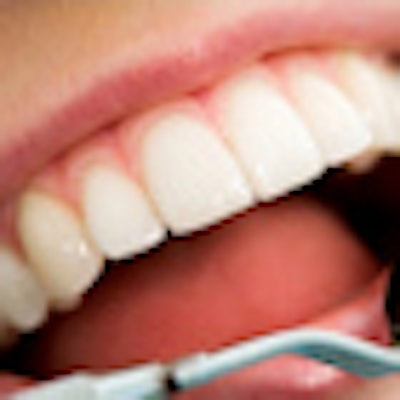
New research out of the University of North Carolina (UNC) supports the growing body of evidence linking oral health and periodontal disease with increased risk of squamous cell head and neck cancer (Cancer Causes and Control, published online January 5, 2010).
Kimon Divaris, D.D.S., and colleagues looked at data from the Carolina Head and Neck Cancer (CHANCE) study, the largest population-based case-control study of its kind to date in the U.S. Conducted between 2002 and 2006 in 46 counties in North Carolina, it included more than 1,000 adults (ages 26-80) with newly diagnosed first primary invasive squamous cell carcinoma of the oral cavity, pharynx, and larynx.
“Even if there is only a small risk increase conferred by periodontal disease, this finding is of public health significance.”
— Kimon Divaris, D.D.S., University of North Carolina
In addition to examining the association of oral health indicators with the risk for these cancers, Dr. Divaris and his team explored the apparent relationship between tooth loss and head/neck cancer risk and the potential interactions between these variables and other lifestyle factors, such as tobacco and alcohol use.
Self-reported data
The researchers used self-reported interview data from the CHANCE study to evaluate oral health in 1,389 cases and 1,396 controls. Variables included number of natural teeth lost, excluding third molars and teeth extracted due to orthodontic reasons; history of tooth mobility; routine mouthwash use; and frequency of dental visits during the decade prior to cancer diagnosis. The controls were frequency-matched with the cases on age, race, and gender.
Marked differences in the prevalence and severity of tooth loss were noted between cases and controls; among those with squamous cell carcinoma of the head and neck (SCCHN), 44% had lost 0-5 teeth and 39% had lost 15-28 teeth, while among controls, 60% had lost 0-5 teeth and 25% had lost 15-28 teeth. Self-reported history of tooth mobility was associated with a 33% increase in SCCHN risk, while dental visits were associated with a 32% decrease in risk. Consistent use of mouthwash was not associated with any notable SCCHN risk change, except for a 32% decrease in risk for pharyngeal cancer.
"Our results do not provide strong support for any positive association between tooth loss and SCCHN risk, in contrast to [what] some recent case-control studies employing tooth loss as a measure of oral health have reported," the researchers wrote.
But they do believe their use of the variable "history of tooth mobility" more accurately reflects a relationship between oral health and head and neck cancer. "Notably, that variable was associated with weakly elevated risk for SCCHN in our study, thus providing support for a possible association of periodontal disease with head and neck cancer risk," they wrote.
Modest but important
Overall, the study findings indicate that oral health factors -- not just traditional risk factors such as tobacco and alcohol use, diet, and sociodemographics -- may contribute to excess risk of developing oral, pharyngeal, and laryngeal cancer, Dr. Divaris said in an interview with DrBicuspid.com.
And while the UNC data support only "a possible modest association" between periodontal disease and increased risk of SCCHN, the findings are important from both a research and a public health perspective, he added.
"We are conservative in our interpretation of the results [because] we used self-reported data of tooth loss indicators, dental attendance, and mouthwash use to capture oral health effects," he said. "However, even if there is only a small risk increase conferred by periodontal disease, this finding is of public health significance because gingivitis and periodontitis are common in the general population."
Mine Tezal, D.D.S., Ph.D., assistant professor at the State University of New York at Buffalo and lead author on a related ground-breaking study published last year in Cancer Epidemiology, Biomarkers and Prevention (September 2009, Vol. 18:9, pp. 2406-2412), agrees.
"This study provides additional support that periodontal disease might be a target to fight against head and neck cancer," she said in an e-mail to DrBicuspid.com. "I am glad to see another study suggesting that we should move beyond tooth loss and explore the direct associations between diseases that cause tooth loss and head and neck cancer."
The results of this study also suggest that tooth loss is a surrogate measure and could be misleading because not all teeth are lost due to periodontal disease, she added.
"A significant percentage of teeth are lost due to dental caries, which are two completely different types of infections," she said. "Cariogenic bacteria, Streptococci, Lactobacilli, and Actynomyces, are associated with periodontal health. In our previous studies too, tooth loss was significantly associated with head and neck cancer in univariate analyses, but its effect was attenuated and lost statistical significance after adjustment for periodontal disease history and other explanatory variables."
In the long run, Dr. Tezal said, more research is needed to further illuminate the correlation between periodontal disease and head and neck cancer.
"I agree with the authors of this study that the next step should be to develop more comprehensive oral health indicators, preferably clinical measures and biomarkers that distinguish the effects of periodontal disease and caries," she concluded.



















